In recent years, the integration of Artificial Intelligence (AI) in various sectors has revolutionized traditional practices, particularly in Financial Technology (FinTech) and Legal Automation. These advancements are reshaping how businesses operate, enhancing efficiency, and providing innovative solutions to longstanding challenges. This article explores the latest trends, applications, and insights into AI’s role in these industries, highlighting the impact of Google AI and other technological innovations.
.
**AI in Financial Technology: A Game Changer for the Industry**
The FinTech sector has witnessed a dramatic transformation with the incorporation of AI technologies. From improving customer service to automating complex financial processes, AI is redefining the financial landscape. According to a report by McKinsey, AI could potentially deliver up to $1 trillion in additional value to the global banking industry by 2030.
.
One of the most significant applications of AI in FinTech is in the realm of customer service. Chatbots and virtual assistants powered by AI are becoming commonplace, providing 24/7 support to clients. These systems can handle inquiries, process transactions, and even offer personalized financial advice based on user data. For instance, companies like Kasisto and Cleo are leveraging AI to create intelligent chatbots that enhance user engagement and streamline operations.
.
Moreover, AI plays a crucial role in risk assessment and fraud detection. Traditional methods of evaluating creditworthiness are often slow and cumbersome. However, AI algorithms can analyze vast amounts of data in real-time, identifying patterns and anomalies that may indicate fraudulent activity. For example, ZestFinance uses machine learning to assess credit risk, allowing lenders to make more informed decisions while minimizing potential losses.
.
AI is also driving innovation in investment management. Robo-advisors, which utilize AI to provide automated investment advice, are gaining popularity among consumers. These platforms analyze user preferences, risk tolerance, and market trends to create tailored investment portfolios. Notable players in this space include Betterment and Wealthfront, which have democratized access to investment management services, making them available to a broader audience.
.
**Legal Automation: Streamlining Processes with AI**
The legal industry, often perceived as slow to adopt new technologies, is now experiencing a significant shift due to AI. Legal automation tools are enhancing efficiency, reducing costs, and improving accuracy in various legal processes. According to a report by Deloitte, legal automation could save the industry over $100 billion annually by 2025.
.
Document review and contract analysis are two areas where AI is making a substantial impact. Traditional document review is labor-intensive and time-consuming, often requiring teams of lawyers to sift through thousands of pages. AI-powered tools, such as Kira Systems and LawGeex, can quickly analyze documents, extracting relevant information and identifying potential risks. This not only speeds up the review process but also reduces the likelihood of human error.
.
Additionally, AI is transforming legal research. Platforms like ROSS Intelligence utilize natural language processing to allow lawyers to conduct research more efficiently. By inputting questions in plain language, legal professionals can receive relevant case law and statutes, streamlining the research process and enabling lawyers to focus on higher-value tasks.
.
AI-driven predictive analytics is another promising application in legal automation. By analyzing historical case data, AI can help lawyers predict case outcomes, assess risks, and make more informed strategic decisions. This capability is particularly valuable in litigation, where understanding potential outcomes can significantly influence case strategy.
.
**Google AI: Pioneering Innovations Across Industries**
Google AI has been at the forefront of AI research and development, driving innovations that impact various sectors, including FinTech and legal automation. The company’s advancements in machine learning, natural language processing, and computer vision have paved the way for new applications and solutions.
.
One of Google AI’s notable contributions is the development of TensorFlow, an open-source machine learning framework that has gained widespread adoption across industries. In FinTech, TensorFlow is used to build predictive models for credit scoring, fraud detection, and algorithmic trading. Its flexibility and scalability make it an ideal choice for financial institutions looking to harness the power of AI.
.
In the legal sector, Google AI’s natural language processing capabilities are being utilized to enhance legal research and document analysis. Tools like Google Cloud Natural Language API allow legal professionals to analyze large volumes of text, extracting key insights and improving overall efficiency. This technology is particularly beneficial for law firms looking to streamline their operations and reduce costs.
.
Furthermore, Google’s AI initiatives extend to ethical considerations in AI deployment. The company has established guidelines for responsible AI use, emphasizing fairness, accountability, and transparency. As AI continues to evolve, these principles will be crucial in addressing concerns related to bias, privacy, and security in both FinTech and legal automation.
.
**Trends and Solutions in AI Integration**
As AI continues to evolve, several trends are emerging in both the FinTech and legal sectors. One significant trend is the increasing emphasis on data privacy and security. With the rise of AI-driven solutions, organizations must prioritize protecting sensitive customer information. Implementing robust cybersecurity measures and adhering to regulatory standards will be essential in maintaining trust and compliance.
.
Another trend is the growing collaboration between technology companies and traditional financial institutions and law firms. Partnerships are becoming more common as organizations seek to leverage AI expertise to enhance their offerings. For example, collaborations between FinTech startups and established banks are enabling the development of innovative financial products that meet evolving consumer demands.
.
In legal automation, the trend towards remote work has accelerated the adoption of AI tools. As law firms adapt to new working environments, AI-powered solutions are facilitating collaboration and communication among teams, regardless of location. This shift is likely to continue as firms recognize the benefits of integrating technology into their workflows.
.
**Industry Use Cases: Real-World Applications of AI**
Several companies are leading the way in implementing AI solutions within FinTech and legal automation. In the FinTech space, companies like Square and Stripe are utilizing AI to enhance payment processing and fraud detection. Their systems analyze transaction data in real-time, identifying suspicious activities and protecting users from potential threats.
.
In the legal sector, firms such as Baker McKenzie and Allen & Overy are leveraging AI to improve efficiency and client service. By adopting AI-powered tools for document review and contract analysis, these firms are reducing turnaround times and enhancing the quality of their legal services.
.
**Conclusion: The Future of AI in FinTech and Legal Automation**
The integration of AI in Financial Technology and Legal Automation is not just a trend; it is a fundamental shift that is reshaping these industries. As AI technologies continue to advance, organizations must embrace the opportunities they present while addressing the challenges associated with their implementation.
.
With companies like Google leading the charge in AI research and development, the future holds immense potential for innovation and growth in both sectors. By leveraging AI, businesses can enhance efficiency, improve customer experiences, and drive sustainable growth in an increasingly competitive landscape. The journey towards a more automated and intelligent future has only just begun, and the possibilities are limitless.
.
**Sources:**
1. McKinsey & Company. (2020). “The Future of Banking: AI in Financial Services.”
2. Deloitte. (2021). “The Future of Legal Services: Automation and AI.”
3. Kira Systems. (2021). “Transforming Document Review with AI.”
4. ROSS Intelligence. (2021). “Revolutionizing Legal Research with AI.”
5. Google AI. (2022). “Advancing AI Research and Applications.”































